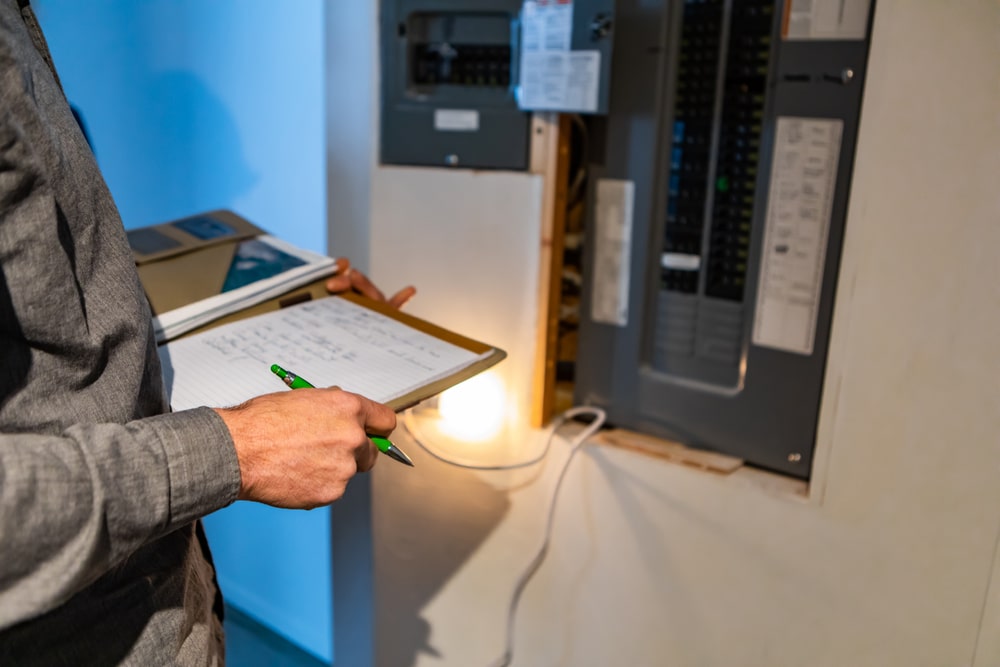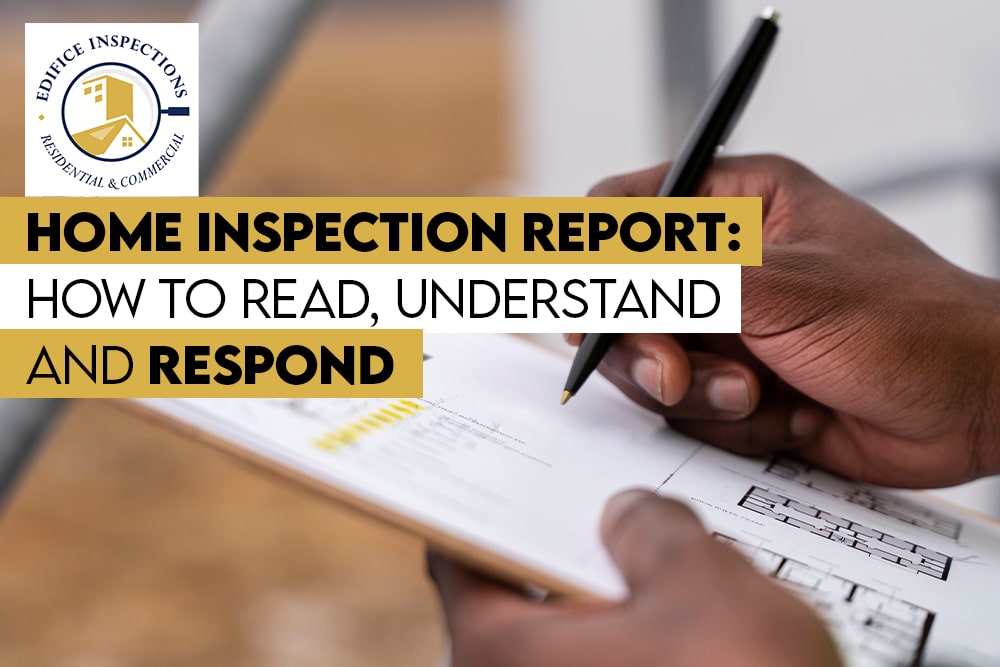- By Digilatics
- Cleaning Roof
- 0 Comment
Whether you’re buying a home or selling one, the importance of a home inspection in Peachtree City, GA, cannot be overlooked. A thorough home inspection report will reveal any problems with the property and provide valuable insight into its condition. But what exactly should you look for in a home inspection report? In this article, we’ll discuss how to read, understand and respond to your home inspection report.
As a home buyer, you’re likely to come across a home inspection report at some point during the process. But what is a home inspection report? How do you read and understand one? And how should you respond to it? A home inspection report document details the condition of a home. It is prepared by a professional inspector who has evaluated the property. The report will include information on the condition of the home’s structure, systems, and components.
To read and understand a home inspection report, start by looking at the summary section. This will give you an overview of the inspector’s findings. Then, read through the report in its entirety. Pay attention to any areas that are highlighted or flagged as needing further attention.
If there are items listed on the home inspection report that concern you, reach out to your real estate agent for guidance on how to proceed. They can help you determine if the issues are significant enough to warrant renegotiation of the purchase price or asking for repairs to be made prior to closing on the property.
What is a Home Inspection Report?
A home inspection report summarizes the condition of a home. It is typically prepared by a professional home inspector after he or she has conducted an inspection of the property. The report will include information about the condition of the home’s major systems and components, as well as any significant defects or repairs that are needed.
The report is typically presented in a format that is easy to understand, with a clear description of each issue and its corresponding recommendation. In some cases, photos or diagrams may be included to provide further clarity. After you have reviewed the report, you can use it as a guide to help you make informed decisions about your potential purchase.
How To Read A Home Inspection Report
Most people are aware that a home inspection report is important when buying or selling a house. A home inspection report can be very long and confusing, but there are some key things to look for. Here is a guide on how to read a home inspection report:
The first thing to look for is the overall condition of the property. The inspector will note any major problems, such as water damage, structural issues, or electrical problems. They will also note any minor problems, such as cosmetic damage or small repairs that are needed.
Next, take a look at the specific items that were inspected. The inspector will list all of the major systems in the house, such as the plumbing, heating, and cooling systems. They will also list any appliances that were included in the inspection.
Finally, make sure to read the inspector’s recommendations. The recommendations will tell you what needs to be done to fix any problems that were found during the inspection. These recommendations should be followed in order to avoid any future problems with your home.
Understanding the Different Components of a Home Inspection Report

A home inspection report is a document that provides a detailed analysis of the condition of a home. The report is prepared by a qualified inspector who has examined the property and assessed its condition. The report will identify any major defects or damage to the property, as well as any safety hazards that are present. It is important to understand the different components of a home inspection report so that you can assess the condition of your home and make any necessary repairs.
The first section of a home inspection report will typically provide an overview of the property, including its address, size, and age. This section will also list any major defects or damage that were observed during the inspection. The next section will provide a more detailed analysis of the condition of the property. This section will often include photographs of any defects or damage that was observed. The final section of the report will list any safety hazards that were identified during the inspection. These hazards may include electrical hazards, trip hazards, or fire hazards.
Responding to the Home Inspection Report

Once you’ve received the home inspection report, it’s important to take some time to understand it. The report will likely be several pages long and include a lot of technical languages. But don’t be discouraged – your real estate agent should be able to help you understand the report and what, if any, action needs to be taken.
Once you have a general understanding of the report, you’ll need to decide how to respond. If there are no major issues, you may simply want to move forward with the sale. However, if there are significant problems, you’ll need to decide whether to ask for repairs or concessions from the seller or walk away from the deal entirely.
If you do decide to ask for repairs or concessions from the seller, your real estate agent can help you draft a formal request. This request will outline the specific problems identified in the home inspection report and what you’d like the seller to do in order to remedy them. The seller can then choose to accept your request, reject it outright, or make a counteroffer.
If the seller rejects your request or makes an unsatisfactory counteroffer, you may decide to walk away from the deal entirely. This is often referred to as “bailing out” of a contract. While it may not be ideal, sometimes it’s necessary in order to avoid buying a home that has significant hidden problems.
Common Issues Found During Home Inspections
One of the most important aspects of a home inspection is identifying any potential issues with the property. Home inspectors will look for signs of structural damage, water damage, pests, and other problems that could cause serious issues down the road. Here are some of the most common issues found during home inspections:
Structural Damage: This is perhaps the most serious issue that can be found during a home inspection. Structural damage can weaken the foundation of a home and lead to major problems down the road. Water Damage: Water damage is another serious issue that can be found during a home inspection. Water damage can cause mold and mildew to grow, which can lead to health problems for occupants. Pests: Pests such as rodents and insects can not only be a nuisance, but they can also cause damage to a home. Inspectors will look for evidence of pests and recommend pest control measures if necessary.
Other Common Issues: Some other common issues that may be found during a home inspection include electrical problems, plumbing issues, heating/cooling system problems, and general maintenance concerns.
Tips for Dealing with Problems Found During an Inspection
If you’re purchasing a home, it’s likely that you’ll have to deal with at least a few problems found during the home inspection. But don’t worry – these problems are usually minor and can be easily fixed.
Here are some tips for dealing with problems found during an inspection:
– First, take a deep breath and try not to panic. These problems are usually minor and can be fixed.
– Next, review the inspection report carefully and make sure you understand what the problem is and what needs to be done to fix it.
– If you have any questions about the report, don’t hesitate to ask your real estate agent or the home inspector for clarification.
– Once you understand the problem, you can start researching potential solutions. Talk to friends, family, and your real estate agent for recommendations on contractors or companies that can help fix the problem.
– Once you’ve found a solution that works for you, make sure to get everything in writing before any work is started. This will protect you from being overcharged or having subpar work done.
Dealing with problems found when availing of home inspection services in Peachtree City doesn’t have to be difficult – just follow these tips and stay calm throughout the process.
Home inspection reports can be confusing and intimidating. But by understanding the information it contains, you can make informed decisions about your home. If a problem is found during the home inspection report, you should consult with an experienced professional who can advise on how best to address any issues that need to be fixed in order for your house to remain safe and sound. Remember – knowledge is power!
– Once you understand the problem, you can start researching potential solutions. Talk to friends, family, and your real estate agent for recommendations on contractors or companies that can help fix the problem.
– Once you’ve found a solution that works for you, make sure to get everything in writing before any work is started. This will protect you from being overcharged or having subpar work done.
Dealing with problems found when availing of home inspection services in Peachtree City doesn’t have to be difficult – just follow these tips and stay calm throughout the process. Home inspection reports can be confusing and intimidating. But by understanding the information it contains, you can make informed decisions about your home. If a problem is found during the home inspection report, you should consult with an experienced professional who can advise on how best to address any issues that need to be fixed in order for your house to remain safe and sound. Remember – knowledge is power!

